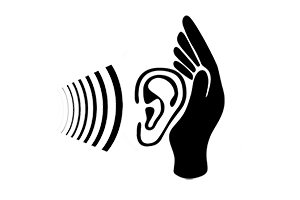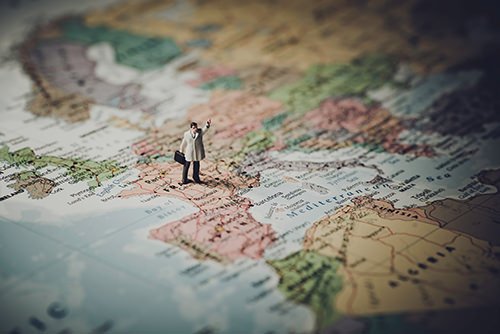How we use Mental Maps to Create our own View of the World

An Explorer's Guide to the Mind's Hidden Wonders
As mentioned in my last post, this blog is all about exploring the mind’s hidden wonders. I’d like to begin this journey by briefly talking about how our mind is thought to work when perceiving others and the world around us - seems like a basic but necessary starting point.
Welcome to the World!
However you see the world around you - as you gaze around your office, the park, your bedroom - the manner in which you perceive it is very different than how it actually exists. Why? Because we experience our environment relative to the physiological components relative to our senses.
Sensory Input and Perceptual Experience

We have physiological capacities for senses like Sight, Sound, Smell, Taste, and Touch - however - the raw sensory data our bodies receive does not make up our experience. This sensory data is routed to perceptual filters that are unique for every person. This perceptions grow over a period of time based on a wide variety of factors like our life experiences, beliefs, age, culture, unique physiology, etc.
Why Humans, and other life forms, view the World differently
These unique perceptual filters are why people view the world, and each other, differently. Furthermore, our sensory capacities (needed to form these perceptions) are fairly unique to humans. For example, a dog does not take in the same visual sense-data (they see the world in shades of grey) and a dolphin holds a sensory faculty that we as humans do not: a form of echolocation, using sound to map out the terrain around them.
Mental Map-making
Map-making is the common analogy for this concept of how we uniquely view the world versus how it actually exists and what it is really like. The earliest reference to this I’ve found is from a story by Jorge Luis Borges which describes a map people make of the world around them, which is quite useful until - eventually - they begin to mistake the map as the territory of the world. In other words, they began to understand the map as reality, instead of the world it describes as reality. As a result, they live in a reduced façade of the world, unable to obtain truth.
The Map is Not the Territory it Describes

This phrase has been repeated by writers, philosophers, psychologists, and others alike over the years (and for very good reason.) Maps are very useful to navigate the world, however once you mistake their simplifications for reality, the negative consequences start to take effect (like false beliefs and their ramifications of unhealthy and/or ineffective patterns of behavior.)
Save Your Self!
I’m going to continue writing about this topic on this blog over the next several weeks (perhaps longer) as a party of my An Explorer's Guide to the Mind's Hidden Wonders series.
In the meantime, you can check out these Map-territory informed authors:
Ken Wilber
Alan Watts
Robert Anton Wilson
Comment below - Follow - Consider up-voting this post if you liked it!
What if the mental map you create ends up being negative for you?
That's a really good question and something I want to write about in future posts. It's unsettling to think about these maps being a contributing factor to something negative and learning to identify them is important.
Nicely written man!!
Thank you :)
I like it! Keep it up :)
Thanks!